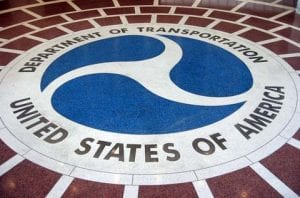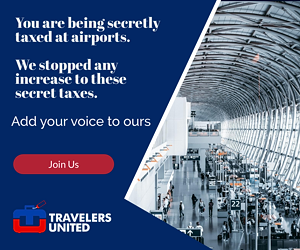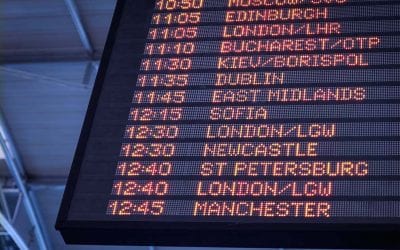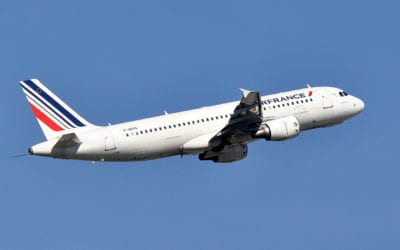DOT announced a Proposed Rulemaking for airline refunds. It rewards airlines rather than punishing them.

Each time Travelers United wrote or spoke about refunds for canceled flights, they included the following:
- Airlines should refund all money paid by passengers for canceled flights by airlines. This is a long-time airline regulation.
- The airline cancellation policy has another important section — passengers are due refunds when airlines “significantly” change their flights. The definition of “significant” is up to the airlines. Some airlines have left the wording in their contract of carriage as significant. However, since the rule has been in effect, Delta Air Lines defined “significant” as 90 minutes. American Airlines described “significant” as 120 minutes. Every airline includes this refund clause by law.
- When passengers canceled flights during the pandemic, they should have received full refunds in the form of non-expiring flight credits. No one canceled a pandemic flight because of a personal decision. Some passengers could not travel because of COVID. Others were patriotic by following the pleading and advice from high-ranking government officials such as President Trump, Dr. Fauci, the head of the CDC, and others.
- All airline flight credits must be uniform in the treatment of refunds. Negotiating airline programs is beyond challenging when airlines have separate rules for flight credits.

The proposed new rule rewards airlines for violating the law and not following their airline refunds rule in their contract of carriage.
The press release announcing the proposed rule will change nothing except allow airlines to be later in arrivals. Plus, it does nothing to standardize airline flight credit rules. Today, not one airline has a similar flight credit system in place. And only Southwest Airlines has committed to eliminating expiration dates on all flight credits.
The explanation of the proposed rulemaking released by DOT is as follows:
For many years, under the Department’s statutory authority to prohibit unfair practices, the Department has required airlines and ticket agents to refund travelers if airlines cancel or significantly change their flights. However, the terms significant change and cancellation had not previously been defined, which has resulted in inconsistency among carriers on when passengers are entitled to refunds. Further, since the start of the COVID-19 pandemic, various airlines have questioned the Department’s authority to require refunds for flights airlines cancel or significantly change. This proposal would codify the Department’s longstanding interpretation that a failure to provide refunds when a carrier cancels or significantly changes a flight to, from, or within the United States is an unfair practice. The Department is also proposing, for the first time, to define the terms significant change and cancellation.
The Department proposes that significant changes to a flight would include:
- Changes that affect the departure and/or arrival times by three hours or more for a domestic flight or six hours or more for an international flight;
- Changes to the departure or arrival airport;
- Changes that increase the number of connections in the itinerary; and
- Changes to the type of aircraft flown if it causes a significant downgrade in the air travel experience or amenities available onboard the flight.
In April of 2020, DOT sent an enforcement notice to all airlines.

This is from the DOT Enforcement Memo of April 3, 2020:
The Department is receiving an increasing number of complaints and inquiries from ticketed passengers, including many with non-refundable tickets, who describe having been denied refunds for flights that were cancelled or significantly delayed. In many of these cases, the passengers stated that the carrier informed them that they would receive vouchers or credits for future travel. But many airlines are dramatically reducing their travel schedules in the wake of the COVID-19 public health emergency. As a result, passengers are left with canceled or significantly delayed flights and vouchers and credits for future travel that are not readily usable.
Carriers have a longstanding obligation to provide a prompt refund to a ticketed passenger when the carrier cancels the passenger’s flight or makes a significant change in the flight schedule and the passenger chooses not to accept the alternative offered by the carrier. The longstanding obligation of carriers to provide refunds for flights that carriers cancel or significantly delay does not cease when the flight disruptions are outside of the carrier’s control…
DOT said it would refrain from punishing airlines if:
(1) the carrier contacts, in a timely manner, the passengers provided vouchers for flights that the carrier cancelled or significantly delayed to notify those passengers that they have the option of a refund; (2) the carrier updates its refund policies and contract of carriage provisions to make clear that it provides refunds to passengers if the carrier cancels a flight or makes a significant schedule change; and (3) the carrier reviews with its personnel, including reservationists, ticket counter agents, refund personnel, and other customer service professionals, the circumstances under which refunds should be made…
Despite these Enforcement Notices, US airlines have not been fined a penny for failing to refund airfares for canceled flights. Worse, the proposed regulation rewards airlines for bad behavior.
Plus, DOT has not produced any letters sent to passengers by airlines apologizing for lying to their customers about cash refunds. The airlines should be fined for not following the law. In the meantime, passengers have been fined millions of dollars for transgressions against airline personnel. It is sad when DOT spends time protecting the airlines from irritated passengers.
If this NPRM becomes a regulation,
- Airlines will officially have more time to define “significantly.”
- No change to refund rules for airlines that cancel flights.
- Passengers will receive less compensation than European Union consumers for “late” flights and only during declared pandemics.
- No sick passenger rule allows airlines to fly contagious passengers anytime.
- Flight credits created according to the whim of each airline with no across-airlines uniformity.
- There will be no penalty for late arrivals or departures based on flight schedules constructed by airlines themselves.
- Consumers have one win: Flight credits will never expire, but airlines can ensure the credits are hard to use, or their use can be limited.
This DOT NPRM is no improvement from the passengers’ point of view.

What airline passenger changes may look like in a couple of years
When it comes to airline delays, human travel advisors/agents will still beat technology

Charlie Leocha is the President of Travelers United. He has been working in Washington, DC, for the past 14 years with Congress, the Department of Transportation, and industry stakeholders on travel issues. He was the first consumer representative to the Advisory Committee for Aviation Consumer Protections appointed by the Secretary of Transportation from 2012 through 2018.

 For many years, under the Department’s statutory authority to prohibit unfair practices, the Department has required airlines and ticket agents to refund travelers if airlines cancel or significantly change their flights. However, the terms significant change and cancellation had not previously been defined, which has resulted in inconsistency among carriers on when passengers are entitled to refunds. Further, since the start of the COVID-19 pandemic, various airlines have questioned the Department’s authority to require refunds for flights airlines cancel or significantly change. This proposal would codify the Department’s longstanding interpretation that a failure to provide refunds when a carrier cancels or significantly changes a flight to, from, or within the United States is an unfair practice. The Department is also proposing, for the first time, to define the terms significant change and cancellation.
For many years, under the Department’s statutory authority to prohibit unfair practices, the Department has required airlines and ticket agents to refund travelers if airlines cancel or significantly change their flights. However, the terms significant change and cancellation had not previously been defined, which has resulted in inconsistency among carriers on when passengers are entitled to refunds. Further, since the start of the COVID-19 pandemic, various airlines have questioned the Department’s authority to require refunds for flights airlines cancel or significantly change. This proposal would codify the Department’s longstanding interpretation that a failure to provide refunds when a carrier cancels or significantly changes a flight to, from, or within the United States is an unfair practice. The Department is also proposing, for the first time, to define the terms significant change and cancellation.

